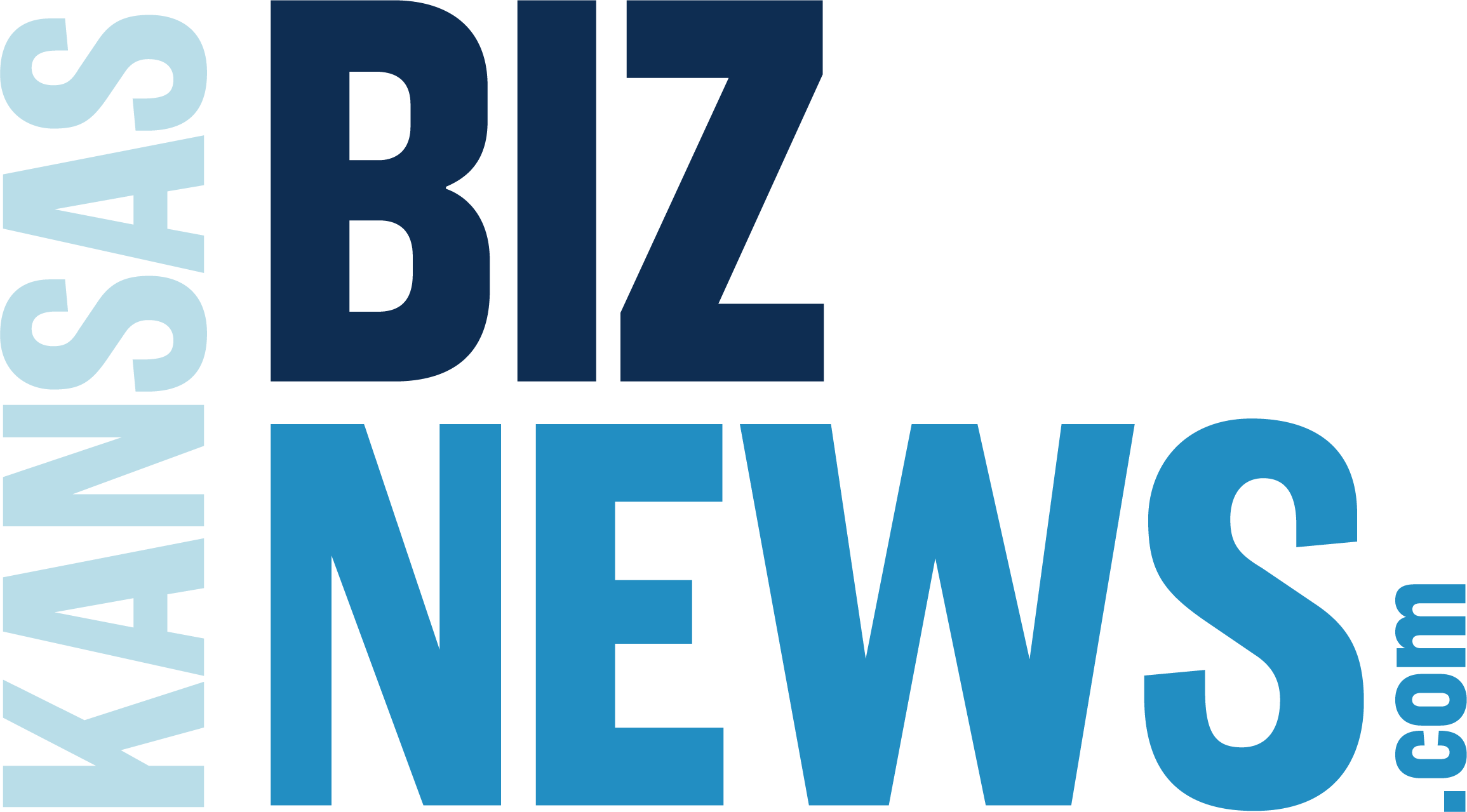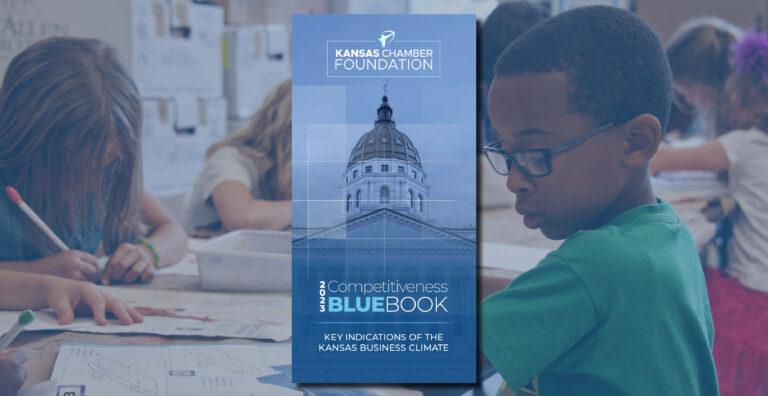The 2023 Kansas Competitiveness Blue Book compares data-driven information on the state’s economic health to the rest of the country on how it performs in a number of key indicators.
A project of the Kansas Chamber Education Foundation, Kansans are encouraged to use the Blue Book as a resource as we work together to remove barriers to our state’s business and economic success to increase prosperity for all Kansans.
This spotlight on how Kansas competes on Education & Workforce Development is the second of a series of eight spotlights.
Spotlight on Education & Workforce Development
Kansas must support an excellent education system that produces a well-educated, well-trained workforce that meets the business needs of today — and the future.
Whether because of building back jobs lost during the pandemic or companies expanding their operations, there is currently a tremendous demand across the Kansas economy for workers. By evaluating online job postings, we can see that companies are working hard to fill gaps. Unique job postings in Kansas are higher (almost double) than even pre-pandemic levels.

Kansas K-12 Schools Rank in the Lower Half of National Testing
Blue Book data point: The National Assessment of Educational Progress, also known as The Nation’s Report Card, ranked Kansas 28th in the nation for K-12 student achievement.1
Why it matters: While Kansas spends more per pupil than most other states, and education is consistently the state’s top budget line item, our K-12 assessment scores remain in the bottom half of states nationally. This creates a competitive disadvantage with states that achieve better results for students in the classroom.
Kansas Colleges and Universities Are Bringing Talent into the State
Blue Book data point: Kansas is ranked 16th in the nation for attracting more college-bound high-school graduates to the state than it exports to other states.2 The state also has high overall educational attainment levels, ranking 17th in the nation for the percentage of its population age 25 and older with high-school diplomas, bachelor’s degrees, and advanced degrees.3
Why it matters: Importing a significant number of out-of-state students to Kansas for college gives the state a prime opportunity to retain talent after graduation and grow the workforce. This also contributes to our population’s overall education attainment level in the future as college grads stay in the state for jobs. The challenge is keeping more of Kansas high school graduates in the state.
Kansas Needs Improvement in Advanced Science, Engineering, and Health Degrees
Blue Book data point: Kansas ranks 30th in the nation for the number of science, engineering, and health doctorates awarded and 36th for the percentage of the workforce with those doctorates.4
Why it matters: Highly skilled people who can fill jobs in science, engineering, and health are in demand globally, and our ability to fill positions in these sectors is critically important to the state’s future economy.
Takeaway
We must support policies that promote coordination of resources and alignment of curriculum between K-12 and higher education institutions to ensure the workforce needs of businesses and career needs of students are met. For example, we should promote advanced degrees tied to high-growth industries and educate young people about the many career opportunities in science, engineering, and health.
Vigorous Kansas-based primary and secondary education standards should focus on college and career readiness and ensure acquisition, comprehension, and retention of an essential base of knowledge at every step of the educational process toward a career suited to each student’s interest and ability.
Data Sources
- 2019 National Assessment of Educational Progress
- National Center for Education of Statistics
- U.S. Census Bureau
- National Science Foundation
Click here to read more about how Kansas competes in 2023 Blue Book.



